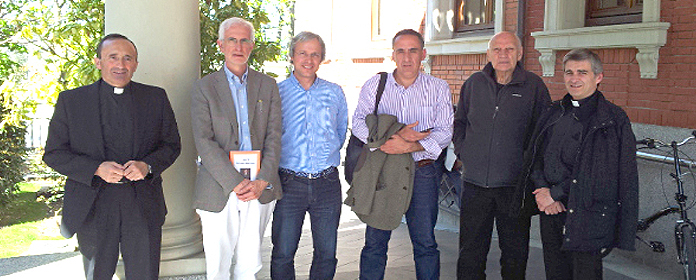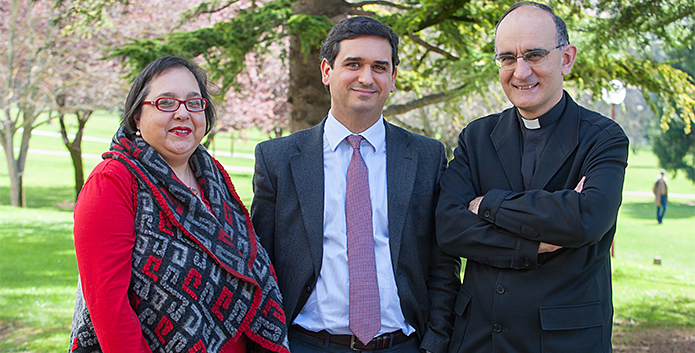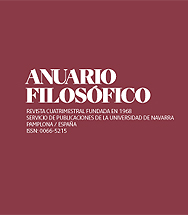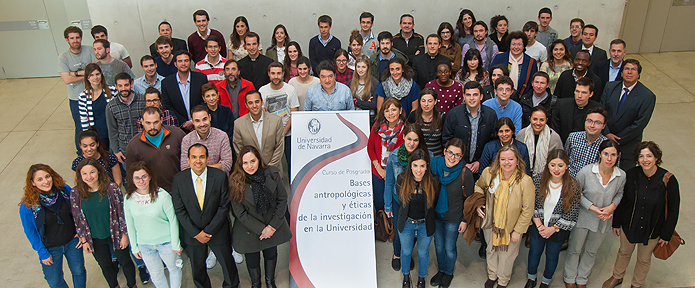A group of research of the University of Navarra edits the translation of John Henry Newman's 'Tract 90'.
The work is part of the project PIUNA 'Conscience and Truth in the Anglican John Henry Newman (1825-1845)'.

Three professors from the University of Navarra and one from the Centro Universitario Villanueva (Universidad Complutense de Madrid) have edited the translation of the work Tract 90. Notes on some passages of John Henry Newman's Thirty-Nine Articles.. The publication is result of the project of research of the University of Navarra (PIUNA) 'Conscience and Truth in the Anglican John Henry Newman (1825-1845)', in which Juan Alonso, professor of the School of Theology (IP of the project); Víctor García Ruiz, professor of the School of PhilosophySergio Sánchez Migallón, Dean of the School Ecclesiastic of Philosophy; and José Gabriel Rodríguez Pazos, professor of the Centro Universitario Villanueva (Madrid).
Author of the translation, introduction and notes, Rodríguez Pazos is a former student and former professor of the School of Philosophy and Letters of the University of Navarra. D. in English Philology and professional translator, he has collaborated with Víctor García Ruiz in the translation of John Henry Newman's Sermones Parroquiales.
As Professor Alonso explains, the goal of this work "is to offer the Spanish-speaking public a document core topic to understand the intellectual and spiritual trajectory of Blessed Newman. In addition to Tract 90 itself, this Issue includes the documents generated by the commotion that followed its publication: the notes issued by the authorities of the University of Oxford and the two extensive letters (to the Rev. R.W. Jelf and to the Bishop of Oxford, Richard Bagot) in which Newman explains his position".
Tract 90. Notes on some passages of the Thirty-Nine Articles. Author: John Henry Newman
Author: John Henry Newman
Translation, introduction and notes: José Gabriel Rodríguez Pazos
Pages: 207
publishing house: Pontifical University of Salamanca
Year of publication: 2017
ISBN: 978-84-16305-53
Tract 90 is the last in the series of short tracts that members of the Oxford Movement - also known as Tractarians - published between 1833 and 1841. The tracts were the brainchild of Newman and were pamphlets dealing with various theological issues, with the goal aim of protecting the Church from State interference and preserving the apostolic faith and, at final, the Catholic -but not Roman Catholic- elements of the Anglican Church. The tracts-which were published without signature, although one-third were written or edited by Newman-soon became best sellers.
Newman was concerned about the attraction of the Church of Rome to some young Tractarians who longed for a Catholic fullness-both doctrinal and devotional-that was lacking in the Church of England. The main stumbling block was the apparent Protestant character of the Anglican Church's Thirty-Nine Articles of Religion. Newman himself explains in his Apology that his motive in writing Tract 90 was to demonstrate that the Articles were susceptible of Catholic interpretation: "The ancient Catholic truth ... was still preserved, notwithstanding, in the Articles. It was there. However, it had to be demonstrated. And that demonstration was for us a matter of life and death. I thought it could be demonstrated ... and I set about doing it immediately."
The condemnation of Tract 90 by the authorities of Oxford University and an express suggestion by the Bishop of Oxford caused Newman to write two long letters (to the Rev. R.W. Jelf and to the Bishop of Oxford, Richard Bagot) in which he gives reasons why he wrote what he wrote in Tract 90. In these two very interesting documents, Newman provides clues for the interpretation of a text in which restraint and prudence could have complicated its understanding.
The letter to the bishop concludes with a paragraph that, years later, Newman would include in his Apology as the formal expression of his withdrawal from the Oxford Movement. Among other things, Newman asks "May God be with me in the times to come as he has been with me hitherto!" The times "to come" saw what the Blessed called in his Apologia "the deathbed of my Anglicanism," which preceded his reception into the Catholic Church on October 9, 1845.




